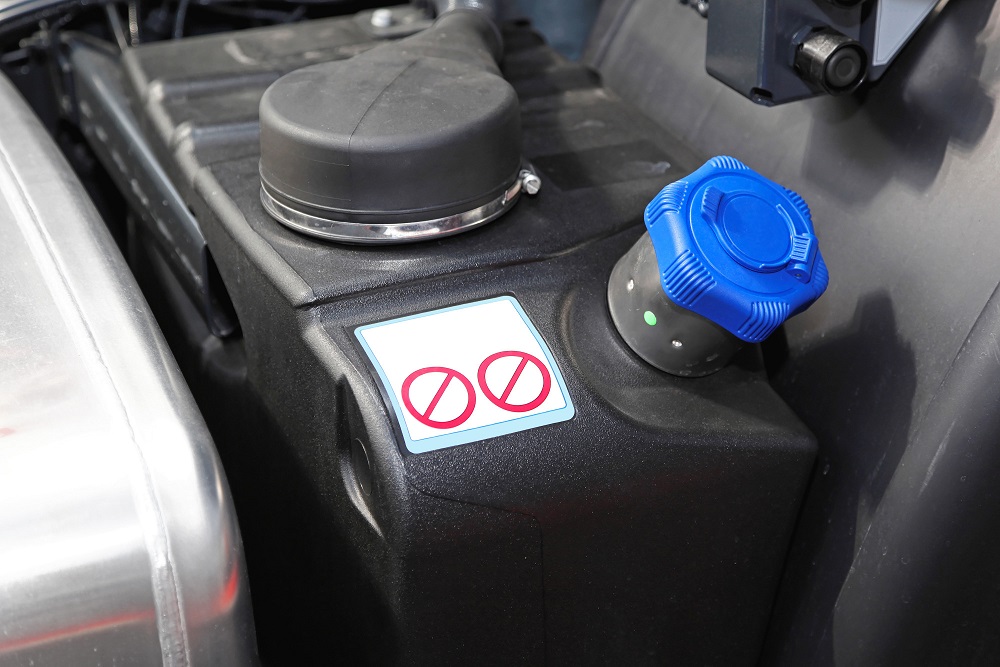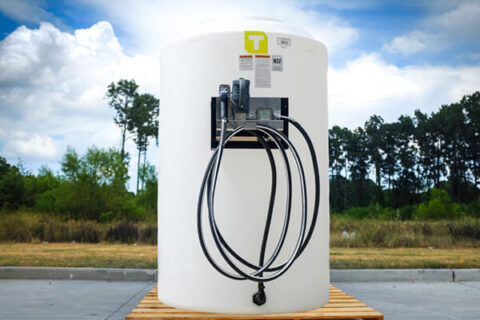Diesel Exhaust Fluid – Everything You Need to Know
 Up to 75% of commercial vehicles rely on diesel fuel to keep them on the road. While this is a necessity for many businesses and individuals, diesel does have serious environmental impacts.
Up to 75% of commercial vehicles rely on diesel fuel to keep them on the road. While this is a necessity for many businesses and individuals, diesel does have serious environmental impacts.
That’s where diesel exhaust fluid comes in. DEF can reduce the amount of pollution that diesel engines cause, helping to create a more stable and efficient environment. If you use diesel exhaust fluid for your diesel vehicle, there are some important facts you should keep in mind.
To find out everything you need to know about diesel exhaust fluid, make sure you keep reading.
What is DEF?
Diesel exhaust fluid is made from mixing water, and an organic compound called urea. In vehicles that use diesel for fuel, DEF is pumped into the exhaust.
In doing so, the emissions that are released from diesel vehicles that damage the environment are turned into water and nitrogen. This makes these emissions harmless to the environment and helps to reduce the impact of using diesel fueled cars.
DEF started to become commonly used in 2010 to meet EPA emissions standards. The effect diesel exhaust fluid has on the fumes created by diesel engines is called a selective catalytic reduction, or SCR for short.
DEF does not damage the engine or the performance of diesel vehicles. Its sole purpose is to reduce the emissions released into the atmosphere that come from burning diesel as fuel.
Do I Need DEF For My Diesel Vehicle?
For larger diesel vehicles, it is a legal requirement to use diesel exhaust fluid. This is because the emissions created by heavy duty vehicles are severe.
Any diesel vehicle made after 2010 has SCR technology built into it. With the separate diesel exhaust fluid tank installed in new diesel vehicles post-2010, refilling your vehicle with DEF is easy.
How Much Does Diesel Exhaust Fluid Reduce Environmental Impact?
The answer is a lot. The EPA has reported that harmful emissions from diesel cars have dropped by around 40% since DEF became a requirement in 2010.
This is a significant reduction in emissions from diesel cars and has impacted the environment in a positive way. If diesel cars are to continue to be manufactured and driven, the use of DEF to combat these emissions is necessary.
Where Do I Store DEF?
Storing DEF isn’t a problem for regular diesel car owners. You’ll find pumps at local gas stations where you can fill up your car’s DEF tank when it runs low. However, for those operating trucks and other commercial vehicles, it can be useful to have a store of DEF on-site.
Diesel exhaust fluid can be stored anywhere as long as it is cool and dry. Direct sunlight should also be avoided if you are storing your own supply of DEF.
If you are storing your own DEF supply, always ensure you use the proper containers to do so. Stainless steel drums are usually best, as they offer the right protection from sunlight and temperature changes. Other options for storage include HDEP plastic barrels.
Is Diesel Exhaust Fluid Expensive?
The amount of diesel exhaust fluid your vehicle needs will significantly impact the price. It can generally be found at gas stations for between $6-$10 per gallon. However, the price will fluctuate depending on whether you’re filing a small car or a large truck.
Can DEF Improve My Vehicle’s Performance?
While diesel exhaust fluid may not actually improve the performance of your vehicle, running low on DEF can have an effect.
If your vehicle starts to run out of DEF, you will notice that it significantly slows down or has other performance issues. While these won’t damage your car, they can be annoying. These problems will go away once you refill your vehicle’s diesel exhaust fluid tank.
The best way to avoid any potential vehicle performance issues is to always ensure your vehicle is well stocked with DEF.
How Does Temperature Effect DEF?
Temperature affects DEF by reducing how long it is viable. If diesel exhaust fluid is stored at temperatures that are too hot, it will not work for as long as it normally should. DEF should be stored below 86°F to ensure it lasts as long as it can.
Keeping DEF in direct sunlight can wreak havoc on the potency of the urea that is used to make it. Ensure DEF is stored in a cool, dark place as described above.
If you are concerned about how freezing temperatures will affect the DEF that is already in your tank, don’t be. Freezing does not have much of an effect on the quality of DEF. As long as it thaws before you drive so that it can remain in production, you have nothing to worry about.
Where Can I Buy DEF?
Diesel exhaust fluid can be purchased at any gas station. Pumps are usually stored near or beside regular diesel pumps. However, they will be marked separately, so ensure you pay attention to what you are filling your tank with.
DEF can also be purchased online. Buying it online may save you money if you choose to buy it in bulk. But it is recommended that you have an appropriate storage facility already lined up if you do choose to purchase your own DEF.
Always make sure to research the diesel exhaust fluid you are buying online and the retailer you’re buying it from. Read reviews and ensure it is a high-quality product. If it is not pure DEF, it could damage your vehicle.
Many stores also stock supplies of diesel exhaust fluid. These may be available in tanks outside the store or in containers. Ask one of the employees if they can help you locate DEF in their store.
Diesel exhaust fluid can also be found at truck stops. Pumps will be available around various areas at the stop. Because commercial diesel vehicles are so common, there are usually plenty of DEF pumps to choose from at stops.
What if I Mix Up Diesel Exhaust Fluid and Regular Diesel?
Accidents happen, and sometimes you will have filled your diesel tank with DEF before you even know what you’re doing. However, if you follow the correct steps, your vehicle can escape this damage free.
Firstly, don’t be tempted to start your engine. If you’ve filled your DEF tank with diesel accidentally, the SCR should pick this up. It will present a warning sign on the dashboard alerting you as the driver.
Moving the vehicle should also be avoided, as this can cause contamination between the lines, which could damage your vehicle.
The simplest solution is to drain whatever tank has the wrong fluid in it. After the tank has been drained, it can be refilled with the appropriate fluid.
What Are the Dangers of Diesel Exhaust Fluid?
In your car or vehicle, diesel exhaust fluid is very safe. However, there are some dangers to it in terms of how it can affect your skin or body.
Diesel exhaust fluid should never be ingested. A small amount can cause nausea and more serious symptoms. If you accidentally ingest DEF, it is best to see a doctor immediately.
If it gets on your skin, diesel exhaust fluid can cause mild irritation or rashes. This can happen when you refill your DEF tank and some of the fluid splashes onto your skin.
If this happens, the fluid should immediately be washed off with water. Some gas stations will provide disposable plastic gloves to refill your tank with. That way, you can avoid getting any on your skin.
The same can be said for DEF and contact with the eyes. If you suspect you have gotten DEF in your eyes, flush it out as thoroughly as possible. See a doctor if any symptoms persist.
How Often Will a DEF Tank Need to be Refilled?
As stated above, a low level of diesel exhaust fluid will lower your engine performance and disrupt your journey. So it’s important to keep your tank filled up, especially if you’re taking a long trip.
How often you need to refill will depend on how big your vehicle is and how far you travel. Always ensure you have enough DEF to get to another stop to refill.
DEF is Important For Any Diesel Run Vehicle
Diesel Exhaust fluid is more important now than it ever has been. Although diesel vehicles could be replaced in the future, they are still very much relied on today. So making sure they have the smallest carbon footprint possible is a high priority.
With diesel exhaust fluid, air pollution from diesel engines is vastly reduced. This cuts down on harmful emissions from these engines. You’ll have the advantage of knowing your diesel vehicle is reducing the damage to the environment.
If you’d like to know more about diesel exhaust fluid, consult this webpage. You can reach out to our dedicated team of experts if you have further questions. They’ll clarify anything you’re unsure about and will advise you on saving on your diesel costs.

